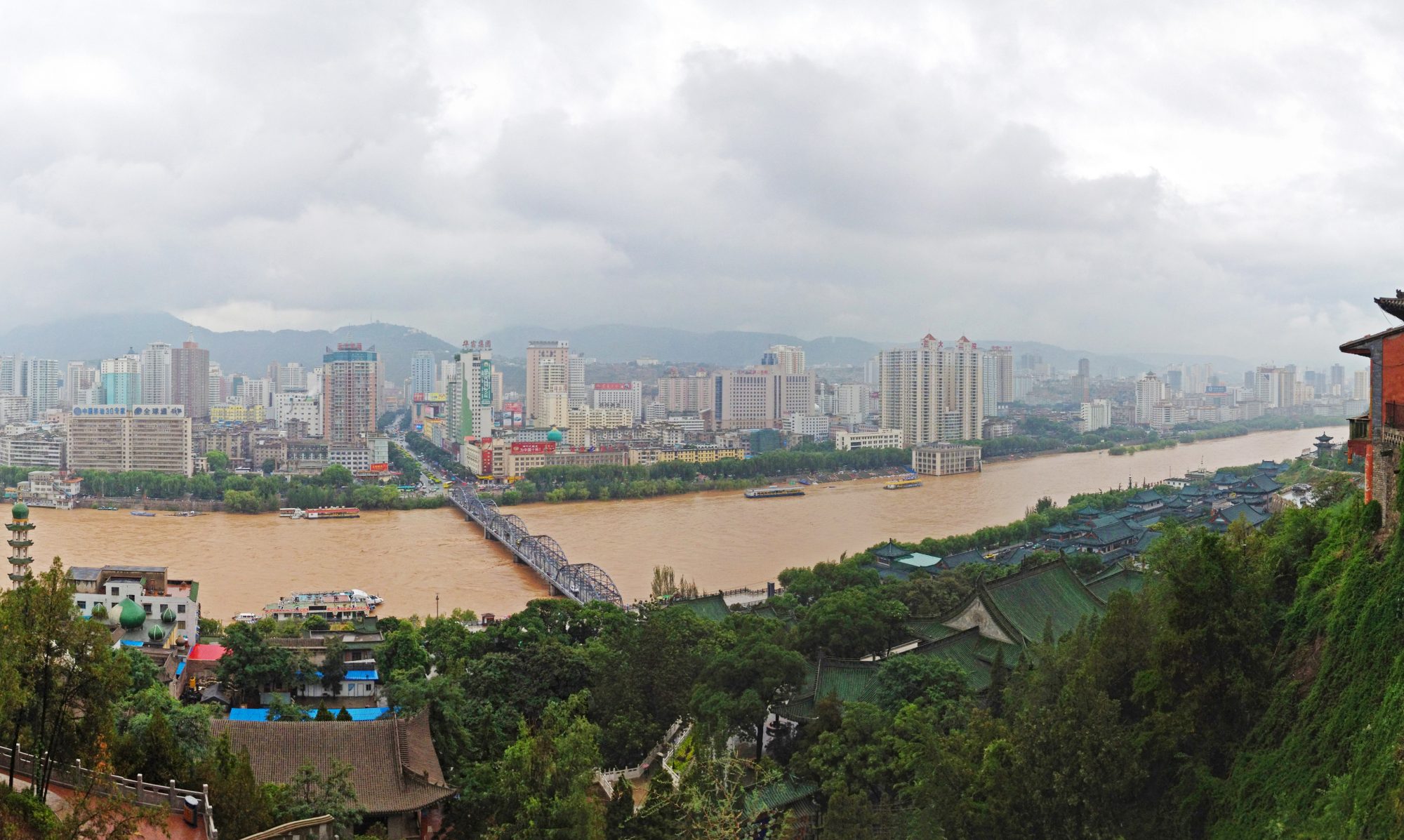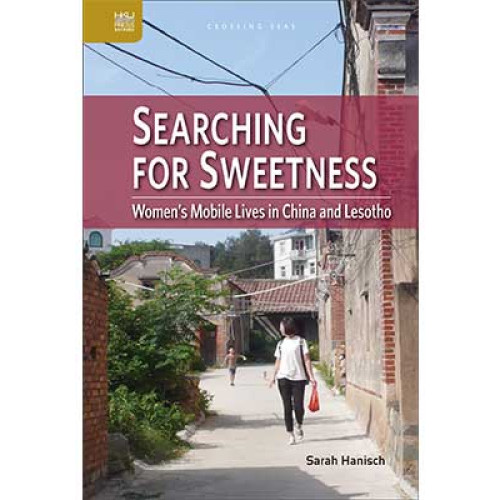Interview: Cheryl Mei-ting Schmitz
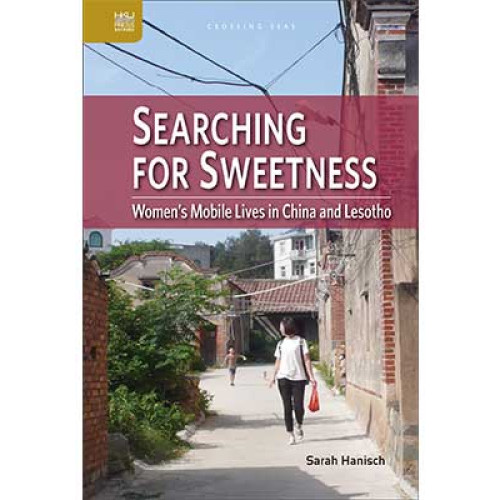
Sarah Hanisch is a researcher and project officer specializing in migration, gender, economic and social inequality, and globalization. She has lived and worked in Austria, Germany, Poland, China, South Africa, and Lesotho. Sarah holds a BA in Management Studies from the University of Applied Science Konstanz, a joint MA in Global Studies from the University of Wroclaw/Vienna/Stellenbosch and a PhD in Chinese Studies from the University of Vienna. She is fluent in English, German and Mandarin.
In July 2022, Cheryl Schmitz spoke to Sarah Hanisch about her new book Searching for Sweetness: Women’s Mobile Lives in China and Lesotho (Hong Kong University Press, 2022).
CS: In the book, we learn that you spent several years living in China, both studying and working, before beginning your research in Lesotho and Fuqing. Could you explain how you came to this project? What were your main aims when you began to look at gendered migration between China and Southern Africa?
SH: I first went to China when I was 19. I just wanted to study Chinese and live in China. I stayed for a year and I liked it so much, and I found it so interesting to talk to people and encounter perspectives different from what you would see in the media that I started to want to keep learning more about China and do research. In my BA thesis, I actually looked at Chinese companies in Africa—from a very, you know, BA-level—because at the time this whole China-Africa thing had started. And I always thought, I want to go to Africa and actually talk to Chinese people, because back then it was mostly macroeconomic approaches with some anecdotal evidence. Then in my MA thesis, I went to Lesotho, and I found it so interesting, the country, and also the Chinese community there. I thought, ok, I really want to go deep, and that’s how I came to my PhD project. Then I had the opportunity to spend a considerably long time in Lesotho, and also in China, to understand their perspectives and their lived realities.
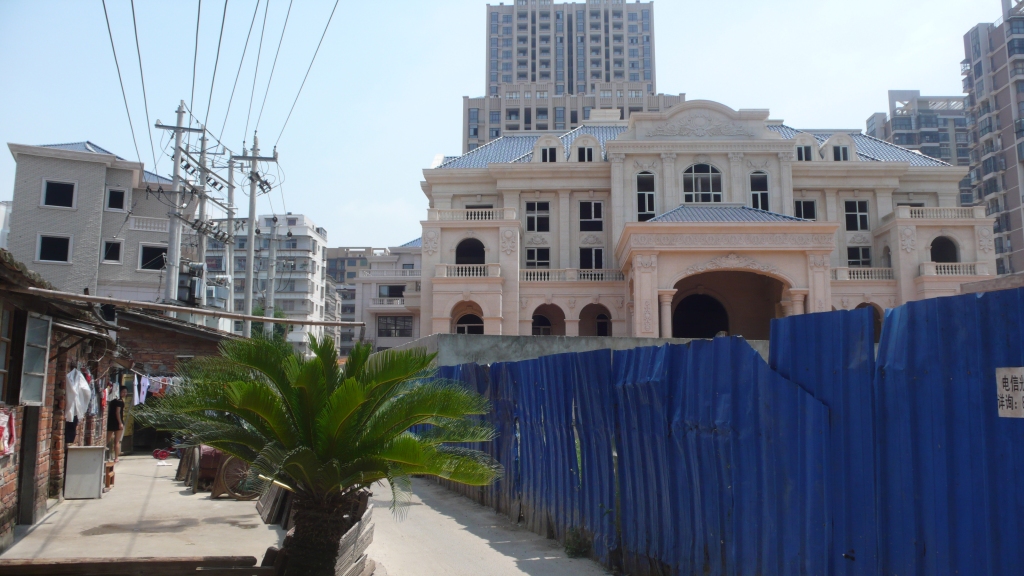
CS: One of the major contributions of the book is your emphasis on the importance of local contexts. Could you describe the different field sites you chose, and how you went about conducting your research in Lesotho and in Fuqing?
SH: It was very different, doing fieldwork in Lesotho versus doing fieldwork in China. In Lesotho, I had a lot of time, nine months, so I could scout out localities, and in the end I chose three towns. I did everything by myself, without any support. I went to the shops, introduced myself, and told the people working there that I was interested in their perspectives. It was up to them, whether to engage further. I think one factor was a kind of mutual interest or curiosity between my interlocutors and me. And that’s how I went about my fieldwork in Lesotho. In China, I originally thought, I already have contacts that I could use. I also had a key interlocutor, who told me she would be back in China and could introduce me to everyone. I thought it was going to be easy. But then she couldn’t make it. The day I landed, she was just not there. And then I had to find an alternative, which, in the end, meant contacting everyone I had ever spoken to and seeing if someone was in China or could offer help, and that’s how I got introduced to the other interlocutors.
For me, as a researcher, it was important but also challenging to understand the different contexts. Lesotho is rural, transport is very different, and it has a unique history as one of the few places that didn’t get incorporated into South Africa. In Fuqing—you know, there are a lot of books about Fuqing and Fujian, and in general people have all these homogenous images and ideas. There’s this idea that it’s a “backward” place from which people want to leave. But that’s just not what I found. Lots of people actually wanted to stay. I also wanted to give the reader an impression of the places where my interlocutors were living, because otherwise the analysis is reduced to the country-level, and then everybody has an idea about “Africa” and “China.” For Africa they think lions, but Lesotho, for example, doesn’t have any game at all. You cannot go game hunting. There are no game parks. Therefore, it was important for me to show this diversity in the larger context of China and Africa.
CS: There are some very vivid comparisons in the book, between your own position as a European researcher and those of Fuqingese migrants, for instance, or between white and Chinese traders in Lesotho. The role of Westerners or whiteness has often been left out of studies on China-Africa interactions. What do you think we might gain from paying attention to it?
SH: I come from an anthropological background, so it’s usually expected that one reflects on one’s own role, but sometimes that is reduced to just declaring yourself a woman, a European, a white person, as if with that everything is said. For me, it was not so important to go into categorical and analytical differences, but really to highlight the way differences impact everyday life. If you go to the German Embassy website for South Africa/Lesotho, it tells you it is a dangerous country, you have to pay attention, but that was not my experience. Basotho are very hard-working people. I always felt safe, and I could move around freely. My Chinese interlocutors, on the other hand, didn’t even dare to go out in broad daylight, and that feeling that you’re never safe, that does something to the way you see your life. So it was important to me to highlight that.
The white trader issue is something that I kind of stumbled upon, because in Lesotho you have all these old trading stations that are still there. Some are still run by the families of the people who originally founded them, and some have been turned into touristic attractions. There’s also a lot of research about white traders, and it’s always emphasized how, although they may have been racist or excluded Basotho from participation, they’re overall good, and they speak Sesotho. I wanted to highlight how people might be treated differently just because they’re European or white. It always annoyed me that local media and also foreigners complained that Chinese migrants don’t speak Sesotho, but then no one was expecting me to speak fluent Sesotho. As long as I could say “Hello” and “Thank you,” it was ok. But a Chinese person, who would have less education than me, less time to learn a language, if they spoke in pidgin, it would be perceived as a failure to integrate. I wanted to show how these different identities affect one’s lived experiences there. That’s why I included the comparisons.
CS: Another crucial feature of the study is your emphasis on the importance of both gender and generation. In the book, you identify three cohorts of women. What major differences did you find between these three groups?
SH: First I’ll say why I chose women. Sometimes if you say you studied women, people assume you didn’t talk to men. That’s not the case. I talked to many men, and I talked to different members of the Chinese communities. They all had interesting perspectives, but I found that female migrants could offer different perspectives. They all have these very different backgrounds and different experiences. They’re often stuck in the shops. They stay there and then maybe if they’re lucky they can go home once a year to see their children, although now, with COVID 19, I don’t think my interlocutors have been home or seen their children in over three years. I think most people can relate to that on a kind of abstract level, but if you’ve ever been in a situation where you haven’t seen loved ones for a long time, you’d really understand the hardship. That was important for me to convey. At the same time, I didn’t want to paint them as victims, but rather to show that they have agency and are doing their own thing, within the constraints they face.
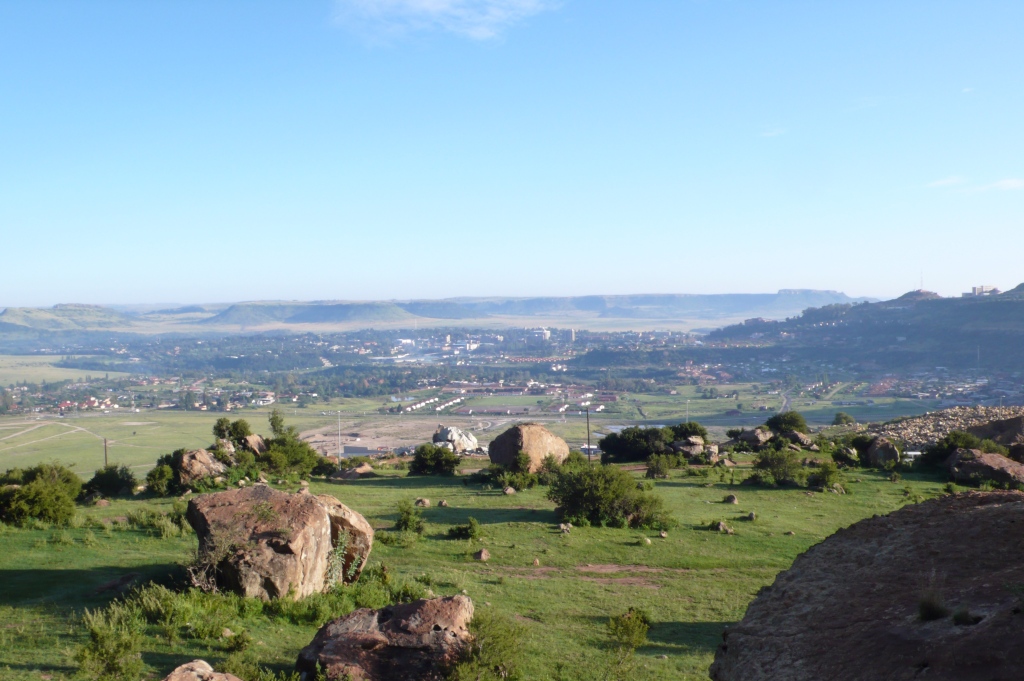
The focus on generations was something I didn’t expect. At least it wasn’t my main purpose initially. When I was first thinking about the project, it was broad. But then as I spoke to women from different generations, I realized that their motivations for coming to Lesotho were different. The way they experienced going to Lesotho, including for those who decided to stay, were also different. There is this older cohort, born in the late-Mao era. For them “going out,” as for many people at the time, was the only way to achieve upward social mobility. They accepted that it would be hard, that they would have to endure all sorts of hardships, bitterness, and so on, and they understood it as the only way that was possible for them.
Then you have the next generation, born in the early Reform and Opening era, so end of the 1970s, beginning of the 1980s. They already have, on the one hand, this strong tradition of “going out” as the only opportunity, but on the other hand they’ve also witnessed a lot of transformation in their hometown. Taiwanese entrepreneurs were coming in, setting up factories, basically offering the same kind of rural-urban migration opportunities that you find in other parts of China. And in that generation, and I think this is one of the most interesting aspects, you also have people who stay. There is this established narrative on Fujian (the province in which Fuqing is located) that people only want to migrate and that those who don’t manage to migrate overseas are perceived as a failure by their peers and by themselves. But the women I spoke to who consciously chose to stay and actually looked down on those who migrate abroad.
The youngest generation is also interesting, because those who go to Lesotho don’t go there for any economic purposes at all. They finish high school, sometimes successfully, sometimes unsuccessfully, and then their parents want to bring them over so they can be together. The parents may think they can impart some life lessons to their children before they marry or go back to China. The children don’t have careers in Lesotho. The only thing that is nice is that they are with their family, and they emphasize this, but it’s not like they’re going to take over the supermarket from their parents, as has been done for earlier generations of overseas Chinese. For me, that was important, to highlight the differences and to show that it matters in what time period one is born, because it’s not “the” overseas migrant and it’s also not “the” rural migrant in China who doesn’t have any opportunities and accepts everything.
CS: The book’s title, Searching for Sweetness, alludes to how the women you met set out to realize various material and social aspirations. The women you came to know had varying relationships to both migration and to ideas like “struggle” fendou 奋斗or “working tirelessly” pinming 拼命. I found your discussion of differing attitudes to pinming fascinating and especially relevant to contemporary discussions around, for instance, the tangping 躺平 (lying flat) “movement.” What were some of the diverse practices and ideas around pinming that you encountered, and how do you see them as connected to broader state projects or generational differences?
SH: I decided to include that aspect basically because in the beginning I was naïve so I kind of assumed—and in the first conversations they would also usually tell me, “We work hard, we accept everything, and this is us.” But then, as you get to know people more, you realize that a lot of them are also questioning if it’s still necessary to work hard, not from a kind of leisure perspective, but really “Will this get me where I want to go?” And with rising inequality, both in China but also later in Lesotho, with all the changing economic factors, the exchange rate going down so much that profits are halved even though you have the same business, with the government, the way it’s been for five years, people start questioning, “Do I need to be apart from my family? And do I need to spend all my best years only working and not thinking about anything else?” That’s why I wanted to include the discussion about pinming. Then later, after I finished the book, I saw everything about tangping, lying flat, and I even spoke about it with my editor, Leila Hall, because she’d also noticed it and said, “This is like your interlocutors.” At the time of my writing, I didn’t even know that it was a phenomenon. But I found it interesting that some of the core assumptions that you have about social mobility in China, education, everyone wanting to pursue education, everyone wanting to get their child into university, are challenged. At least this was the case for those people I spoke to. That way I could also show how the younger generation has very different ideals and ideas about what their lives should be.
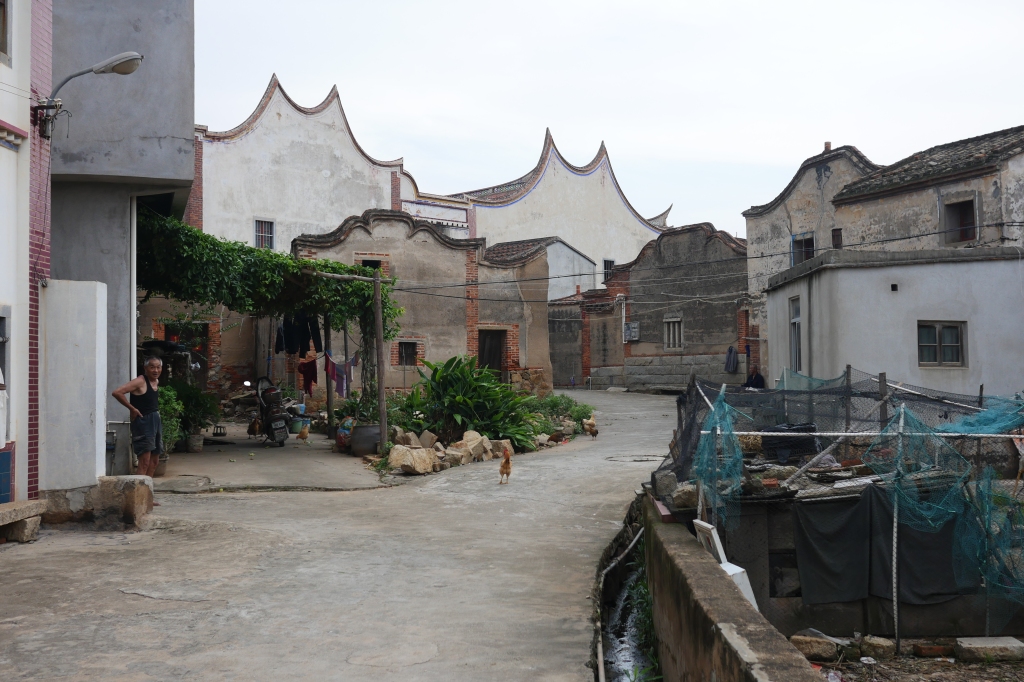
CS: Since you just mentioned it, I was also really impressed by how you wrote about the role of the Lesotho state as a significant actor in the situation you describe. Sometimes in studies of China-Africa relations, the agency of African states is not really emphasized, so I think that’s another important contribution of the book.
SH: I was struggling with that part, because for China, you have this emphasis on the role of the state and state narratives. And then for Africa, there’s not so much literature about it. You have literature about corruption, literature about political systems failing. But you don’t have that much recent work that is actually looking into how the state thinks about development and then actually implements it, especially in the China-Africa literature. In Lesotho, the state is rarely connected to discussions about Chinese migrants and the economic situation of the country. I tried to highlight the many ways in which the post-independence state in Lesotho laid the foundation for the very problems Lesotho has with immigrants, the very insecurity Chinese migrants face and with the lack of opportunities for Basotho. State actors tend to say “Oh it’s the foreigners who take everything from you, and we can’t do anything about it.” They adopt a similar attitude when it comes to the protection of Chinese migrants. My point is that the state could do something, but chooses not to.
CS: I want to end with a question related to these amazing life histories that you collected. By focusing on the diversity of individual perspectives and experiences and through detailed life histories, your book challenges both official Chinese state narratives and stereotypes of Chinese migrants. The women’s biographies were not only enjoyable to read, but also give a sense that you really developed close relationships with many of the women featured in your study. If you could choose one story or character that you found most interesting, what would it be?
SH: For me, personally, even though all of them had amazing stories, I’d choose Chen Fei. She came from a village in Fuqing and then wanted to make it in the city, and she had so many attempts and failures. But she never described it as being her fault. Instead, she thought, “That’s not what I wanted.” And I found this so empowering, also for my own perspective on life. I mean, you have choices, and you can do lots of things, and, maybe, like Chen Fei, at one point you’re a yoga instructor and the next you’re selling something, and you never know where these things lead you. I tried to include her full story, though I had to shorten it a lot, because there were so many twists and turns.
But the point, and this is what I hope will entice readers to read, is that you meet the women throughout the different chapters. It’s not the classical, ok, so this is a woman I’m going to introduce to you. Life is hard, tomorrow is better, that kind of story where you have three pages about a person and then you never get back to them. This was also what I had been missing a bit in ethnographies, that you get introduced to so many interlocutors, with very basic biographical information—age, gender, maybe a little bit about their background—but then you never meet them again. I really wanted to try to follow the women and show how at different points in their lives they could be included in my analysis. There are so many different stories. You have people who are younger than me, but they start their life stories with telling about their grandmother who was a child bride in the Republican era. I found that so interesting, and it’s just something to think about. Because nowadays there’s so much monolithic talk about “the Chinese,” and China, but if you read the book, you’ll realize that there’s also so much diversity. You never know what to expect, so it’s always good to keep an open mind.
